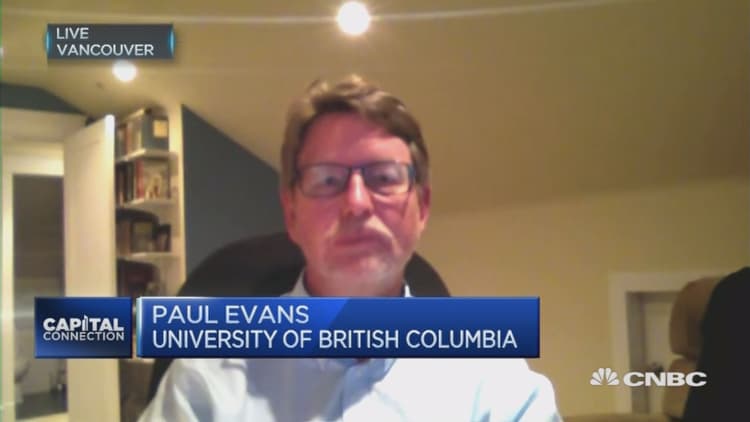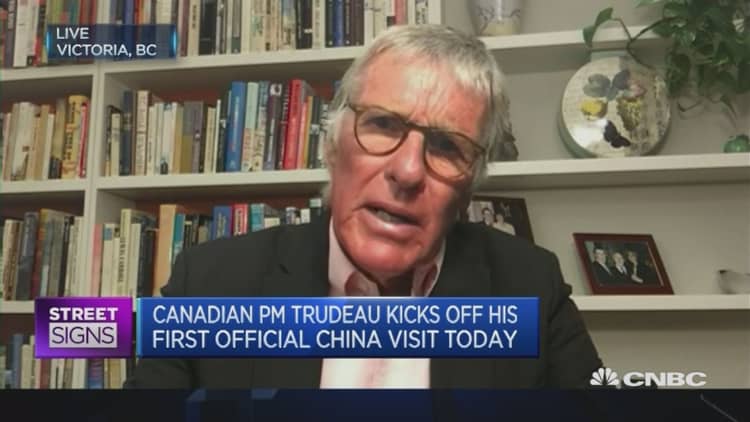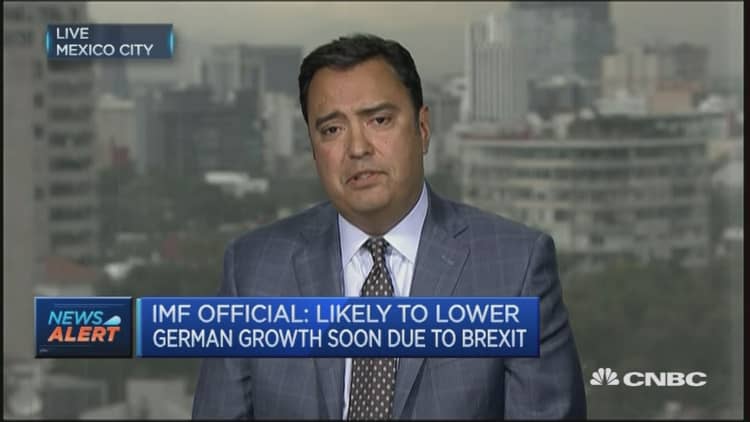



Canadian Prime Minister Justin Trudeau is on a week-long visit to China, and he certainly has his work cut out for him amid a range of complications currently weighing on bilateral ties.
It's his first official visit to the mainland, and he's due to stop in Beijing, Shanghai, Hong Kong and Hangzhou for the G20 leaders' summit that commences Sunday. Trudeau's father, former Prime Minister Pierre Trudeau, was one of the first Western leaders to normalize relations with China in 1970s.
From a trade spat to backlash against Chinese immigration, tensions between the two countries have increased this year.
At the heart of the matter is the fact that Canada values its relationship with China but remains hesitant over the latter's politics, which makes diplomacy more challenging, summed up Jeremy Kinsman, a former member of Trudeau's foreign affairs council.
"Canada remains wary at the way the [Chinese] state exercises power and authority, both in regard to dissidents but also in foreign relations. Canada will have no influence on any matter unless there is a relationship so building that relationship is the purpose of the trip," Kinsman explained.
Here's a breakdown of the various issues likely to imbue talks this week.
The canola war
The two countries are currently in the midst of a trade spat over canola. The crop is one of Canada's top commodity exports, and shipments to China are worth around $2 billion a year.
China wants to only allow canola shipments containing one percent of dockage, versus the current 2.5 percent allowance. Dockage refers to parts of the canola plant other than seeds, such as weeds and other crops. The move is expected to tighten imports of Canadian canola, with Beijing justifying its action on concerns over a crop-destroying fungal disease called blackleg.
As Canadian media point out, China did the same thing six years ago and at the time, scientists confirmed that there was little chance of blackleg infection, which saw China ease restrictions in 2012. With that scientific reasoning still valid today, critics say Beijing's new rule is akin to implementing a non-tariff barrier so China can protect its own canola production and improve prices on existing stockpiles.
Canadian Trade Minister Chrystia Freeland has warned bilateral ties cannot advance until a deal is reached, which throws a cog into on-going talks for a free trade partnership (FTA).
"It's hard to proceed with free trade when Canada feels the Chinese aren't being straight with them," said Charles Burton, associate professor at Brock University.
"The science seems to be on Canada's side but as the seller, Canada will have to adjust and change some of its facilities for separating canola from other materials" noted Paul Evans, professor at the University of British Columbia. "Trudeau is going to play for time and postpone this matter for at least a year or two."
For now, Beijing has agreed to delay implementing the new rule, which was due to come into effect Thursday, as both countries work out a long-term solution.
Energy investments
For a Canada-China FTA to proceed, Beijing also has a few preconditions, notably a removal of barriers to Chinese investment in Canada's vast oil sector.
Under previous PM Harper, Ottawa installed barriers to investment by foreign state-owned enterprises (SOEs) within Canadian oil sands in 2012, which resulted in a pronounced drop in funding for Alberta's now cash-strapped oil sands.
Public support for Chinese SOE investment in the resources sector stands at 11 percent, pointed out Burton, referring to the results of an Asia Pacific Foundation of Canada poll released Wednesday.
But despite the strong public opposition, Trudeau is ready to take a more open view, according to Evans. "He doesn't see SOEs as a direct threat to Canadian-style capitalism."
Consular matters
In June, reports emerged that China was refusing to allow Canadian-Chinese citizens residing in Hong Kong to enter the mainland on Canadian passports, warning they could only visit as Chinese nationals.
Such a move effectively denies the dual citizens of Canada's consular protection and is a big setback for the 300,000 dual Canadian-Chinese citizens in Hong Kong, Burton noted.
Matters like these are unlikely to improve China's general image in the eyes of Canadians, he added. In a February poll conducted by Nanos Research, 76 percent of Canadians said they held a negative impression of the Chinese government.
The situation of Kevin Garratt, a Canadian man who has been jailed in China for the past two years on suspicion of spying, is another prickly matter. Garratt was living in a Chinese city on the North Korean border where he conducted Christian aid work for North Koreans when Beijing detained him in 2014.
On Wednesday, Premier Li Keqiang told a news conference on Wednesday that China and Canada would continue to communicate on the issue, stating that Garratt would be treated humanely and lawfully.
Housing
Mainland officials may also raise the matter of Canadian resentment to real-estate purchases by Chinese citizens.
In July, the province of British Columbia (BC) implemented a punitive tax on foreigners buying residential property in an attempt to stem a massive spike in home prices, believed to be driven by wealthy Chinese spending millions on homes. The rule, which came into effect on August 2, was aimed at addressing concerns that Canadians were being priced out of the market and soon prompted Chinese state media to warn buyers about owning Canadian real estate.
"Canadian public opinion is riled by the belief that wealthy Chinese, whose wealth comes from sources that may be questionable are buying property in Canada, notably Vancouver, often in non-transparent ways, as a hedge for their assets in worry the Chinese economy will tank," explained Kinsman.
Not all is lost
Amid all the heated issues, there is at least one bright spot.
Canada's decision to submit an application to join the Asian Infrastructure Investment Bank (AIIB) by year-end, as announced on Wednesday, is widely expected to boost the bilateral relationship.
Canada failed to join the AIIB as a founding member amid U.S. efforts to deter its allies from joining so Wednesday's news is widely seen as a coup for Beijing. The AIIB is a Chinese initiative that began operations in January 2015.

